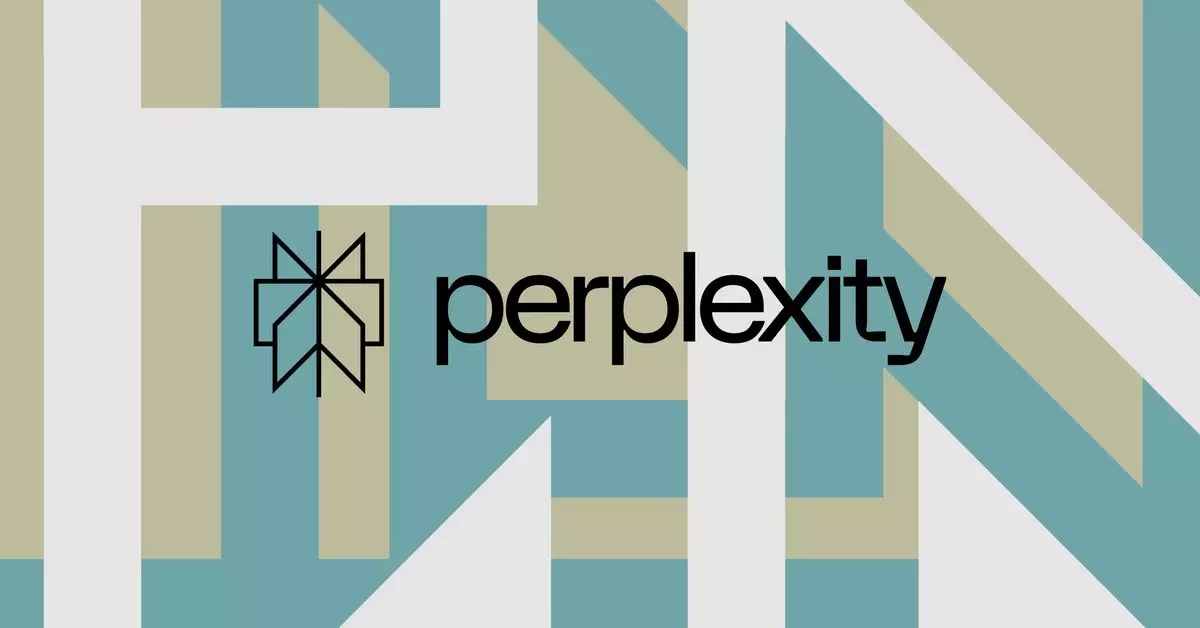In the rapidly evolving tech landscape, the intersection of artificial intelligence and media has become a hotbed of legal and ethical contention. At the heart of a recent clash is Perplexity, an AI startup offering a search engine that aims to navigate an increasingly complex digital world. The company’s burgeoning reputation has recently been tarnished by accusations levied by News Corp, a global media conglomerate, alleging that Perplexity’s AI technology engages in content scraping. This legal fray raises critical questions about ownership, copyright, and the future relationship between AI technologies and the journalistic integrity of established media outlets.
News Corp has asserted that Perplexity’s search engine engages in the mass copying of content without consent, branding this action as an infringement that threatens the very fabric of journalistic practice. This lawsuit does not merely target Perplexity in isolation; it serves as a broader indictment of AI applications that utilize public data without direct compensation to original sources. The legal battle comes against a backdrop of concerns across the media industry that AI technologies could significantly undermine traditional revenue streams essential for journalistic enterprises.
Perplexity’s rebuttal underscores a deeply rooted philosophy that continues to clash with corporate media’s stance on what it perceives to be its proprietary rights over publicly reported facts. The firm argues that it does not infringe on copyright protections, which traditionally safeguard the form and expression of ideas rather than the ideas themselves. In doing so, Perplexity hints at a vision of a more open digital environment where freely accessible information serves the greater public good rather than being hoarded by corporations.
The Clash of Ideologies
The contradiction between the goals of AI companies and the desires of news organizations points to a significant ideological schism in the digital age. Perplexity’s defense emphasizes its commitment to promoting an ecosystem where knowledge is widely disseminated. The company critiques the stance of Media corporations like News Corp as being short-sighted. In an ever-evolving technological landscape, where information flows freely and rapidly, the rigidity of corporate claims to facts seems ill-equipped to address the innovative potential of AI integration in the field of information sourcing.
Furthermore, Perplexity claims that it is actively working to establish a revenue-sharing program in conjunction with various publications, indicating its willingness to collaborate rather than engage in rampant copyright infringement. Yet, the underlying implication is that departments within these larger media corporations cling to outdated business models while grappling with the disruptive force posed by advanced AI applications.
News Corp’s reaction to Perplexity’s defense not only reiterates the seriousness of the claims made but also employs language indicative of a much larger battle over intellectual property rights in the digital realm. The language employed by Robert Thomson, News Corp’s CEO, paints a picture of an ongoing struggle to protect journalistic integrity from AI entities accused of being “content kleptocrats.”
As the conversation deepens, it becomes apparent that the core of this issue is more than just a legal matter; it is deeply enmeshed in broader questions about the future of media, the role of technology, and the ethics surrounding information ownership. News Corp’s strategy hints at an institutional desire to navigate these challenges through litigation rather than adaptation, raising the stakes for all parties involved.
The Road Ahead for AI and Journalism
Ultimately, the impending resolution of this dispute will likely set significant precedents for AI’s role in the media landscape. This situation invites various stakeholders—media organizations, tech innovators, policymakers, and the public—to engage in critical dialogue regarding the value of intellectual property, the ethical dissemination of information, and the potential benefits and pitfalls of AI technology. The urgency for a balanced approach is further intensified by numerous complaints asserting that AI entities have limited respect for the profound work ethic invested in journalistic practices.
As we look ahead, a cooperative approach might be vital for both sectors to thrive in a technology-driven future. Establishing clear boundaries that acknowledge both the rights of content creators and the transformative potential of AI could be the key to fostering a more harmonious coexistence. The outcome of this legal tussle may reveal the nuanced complexities of innovation, ownership, and ethics in a landscape marked by overwhelming technological progress.

